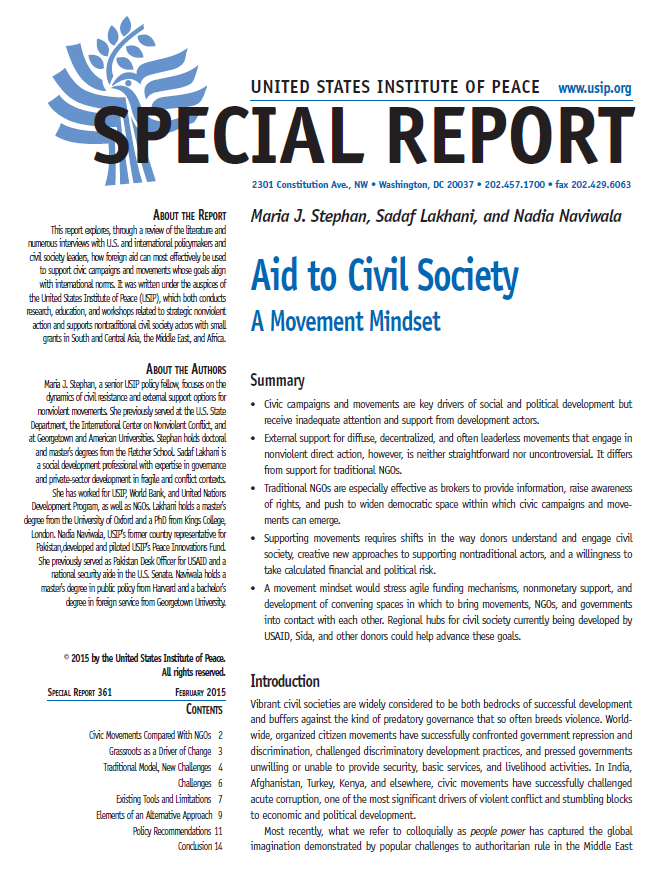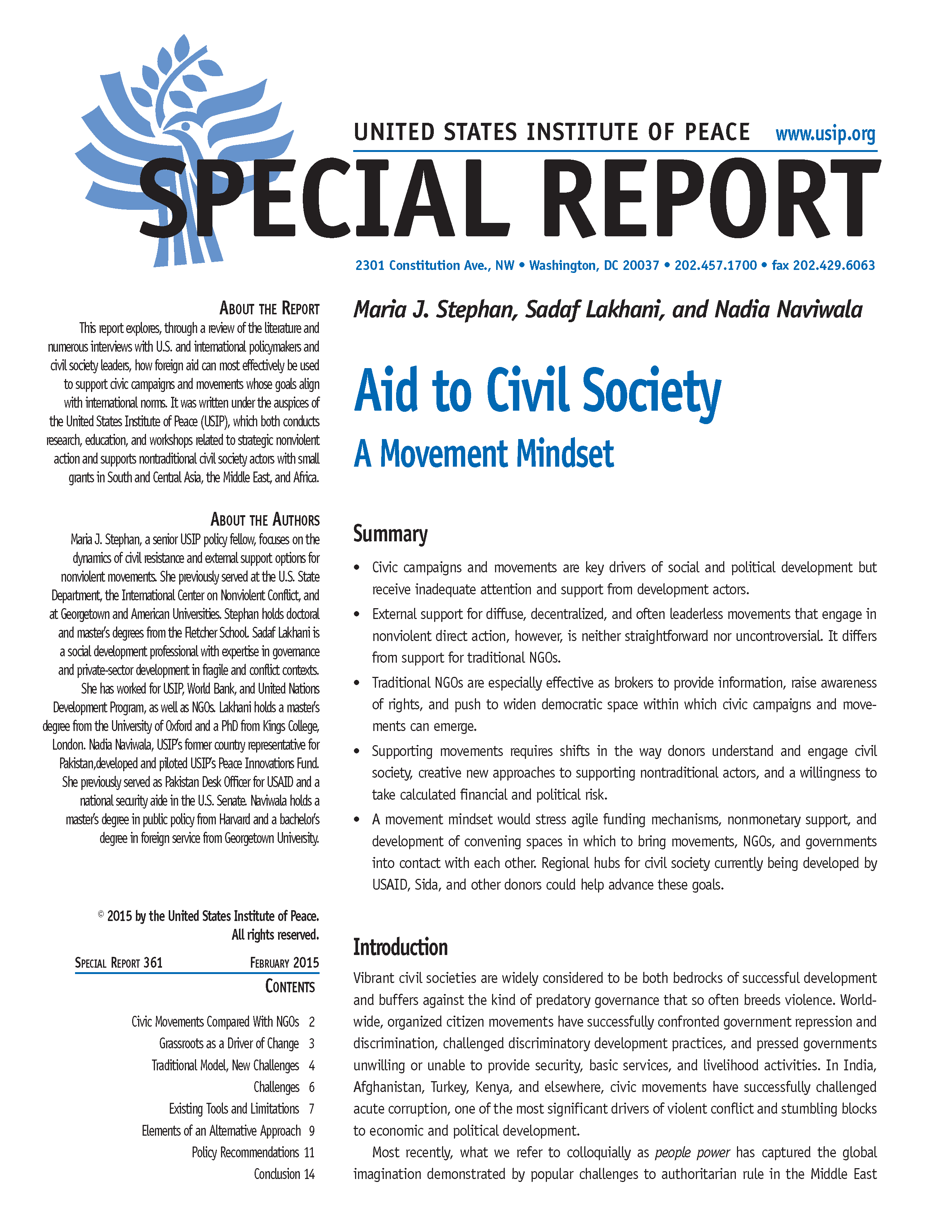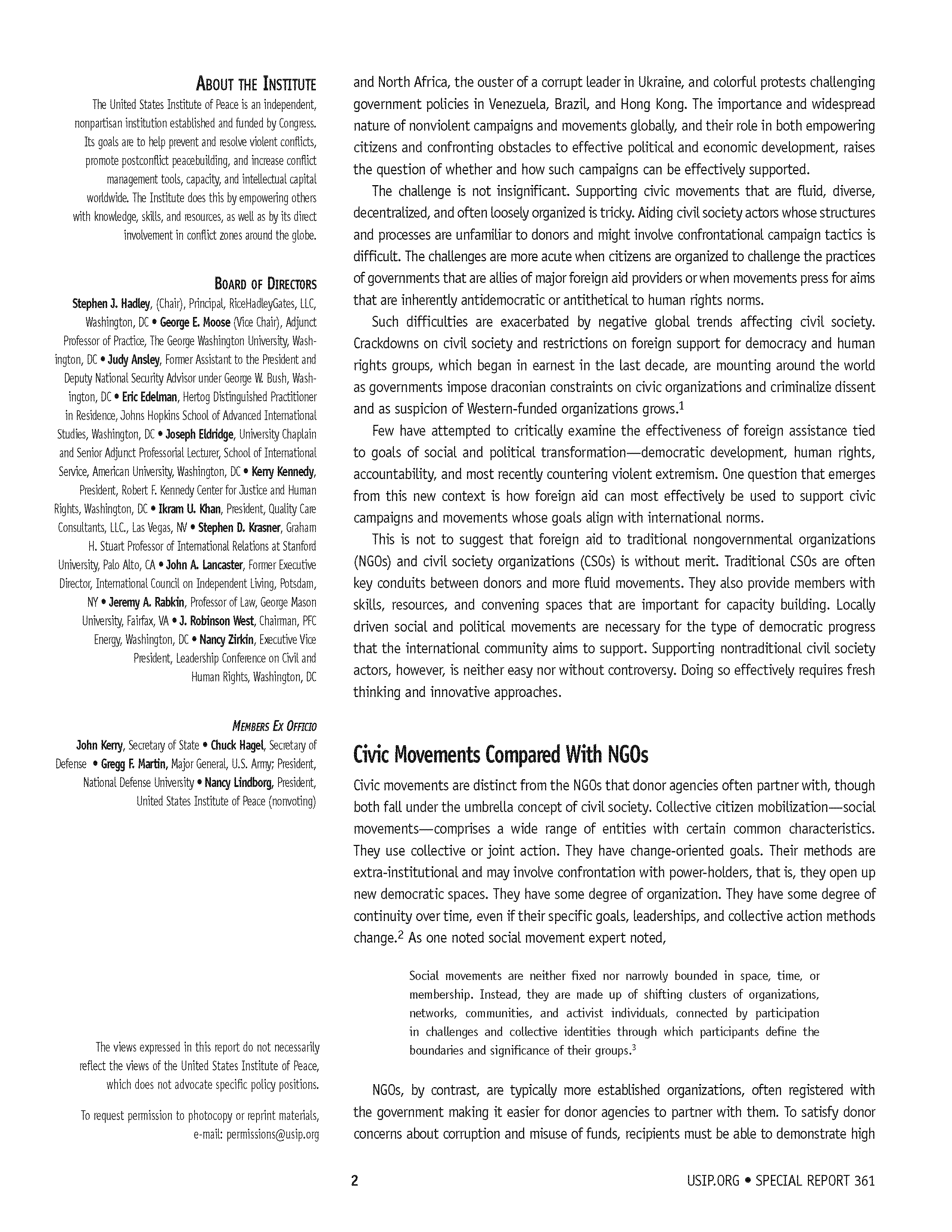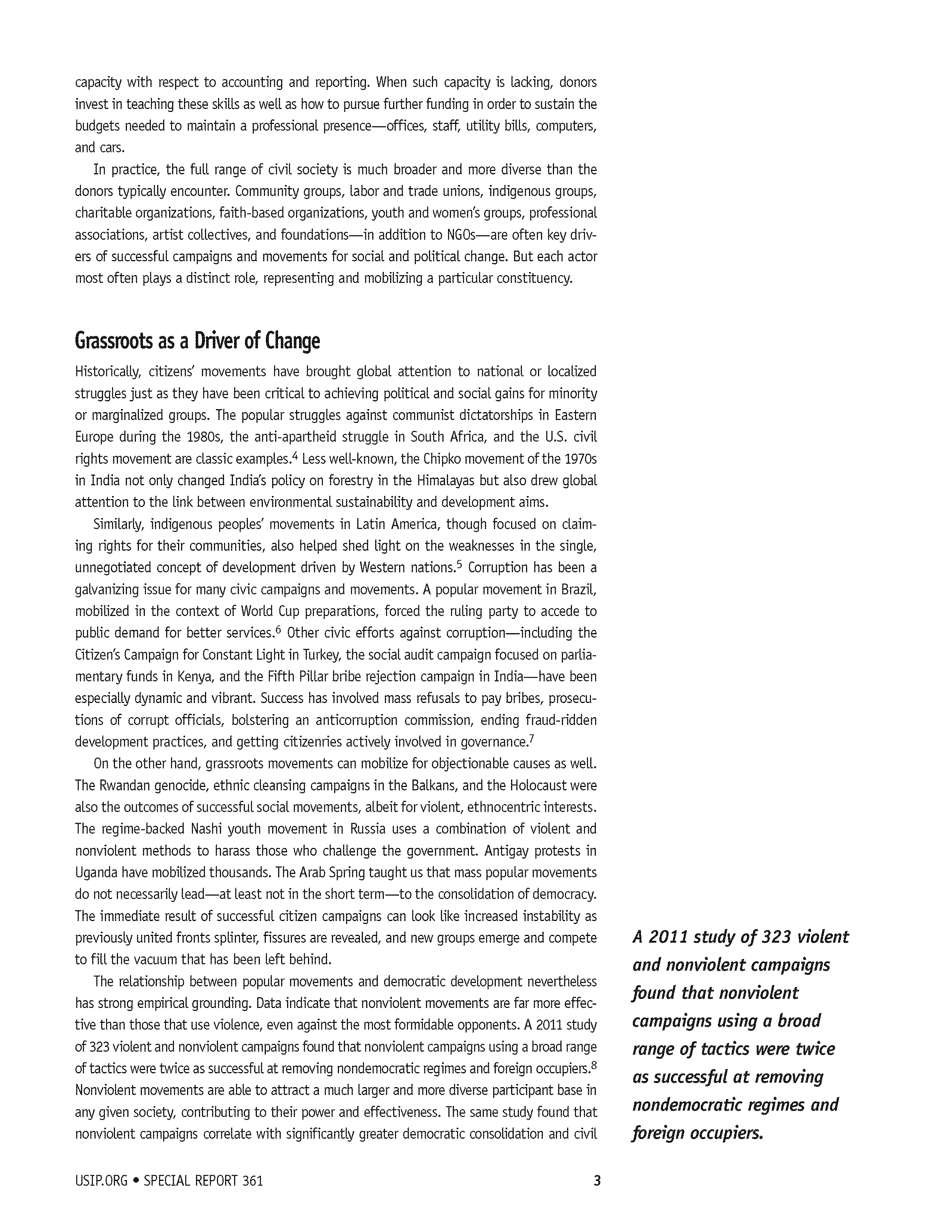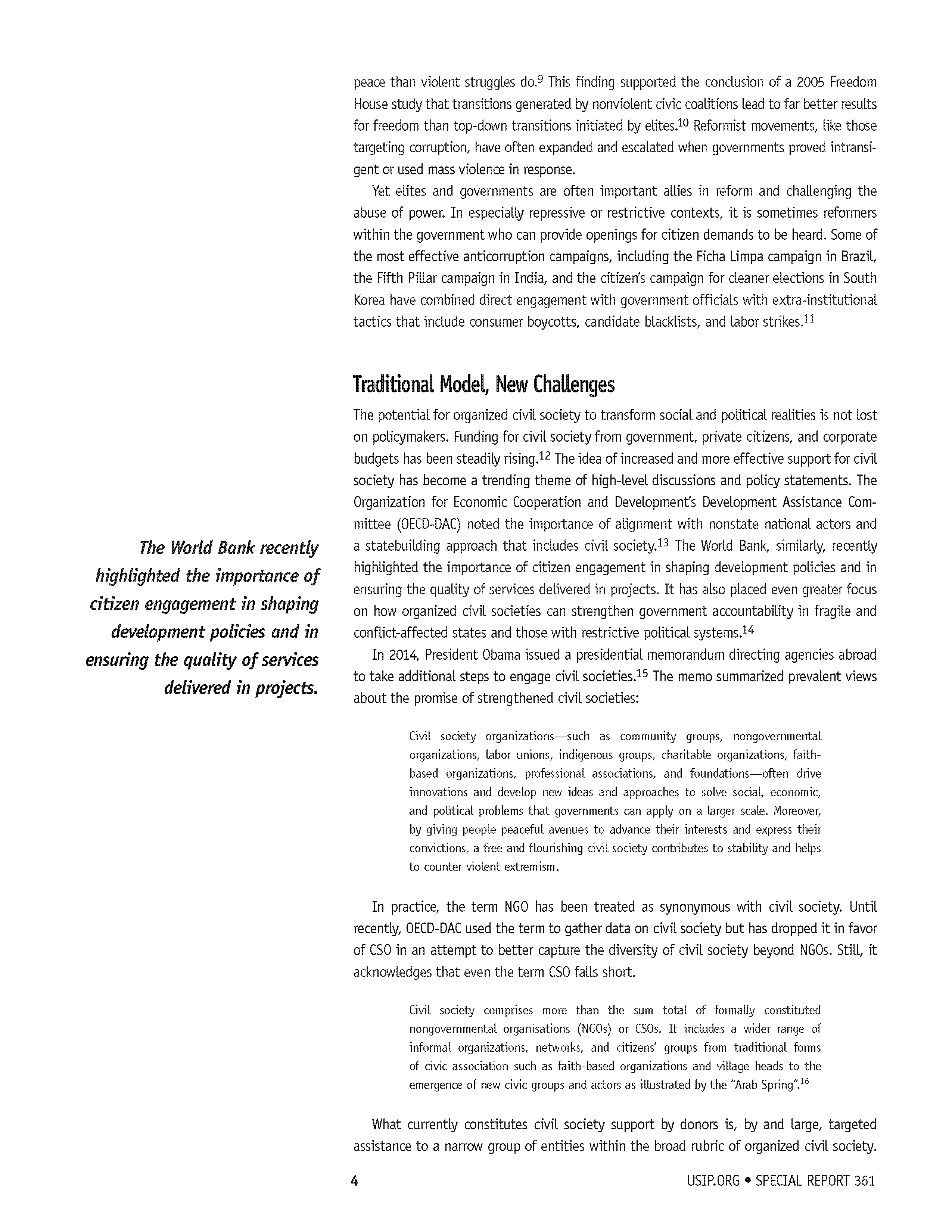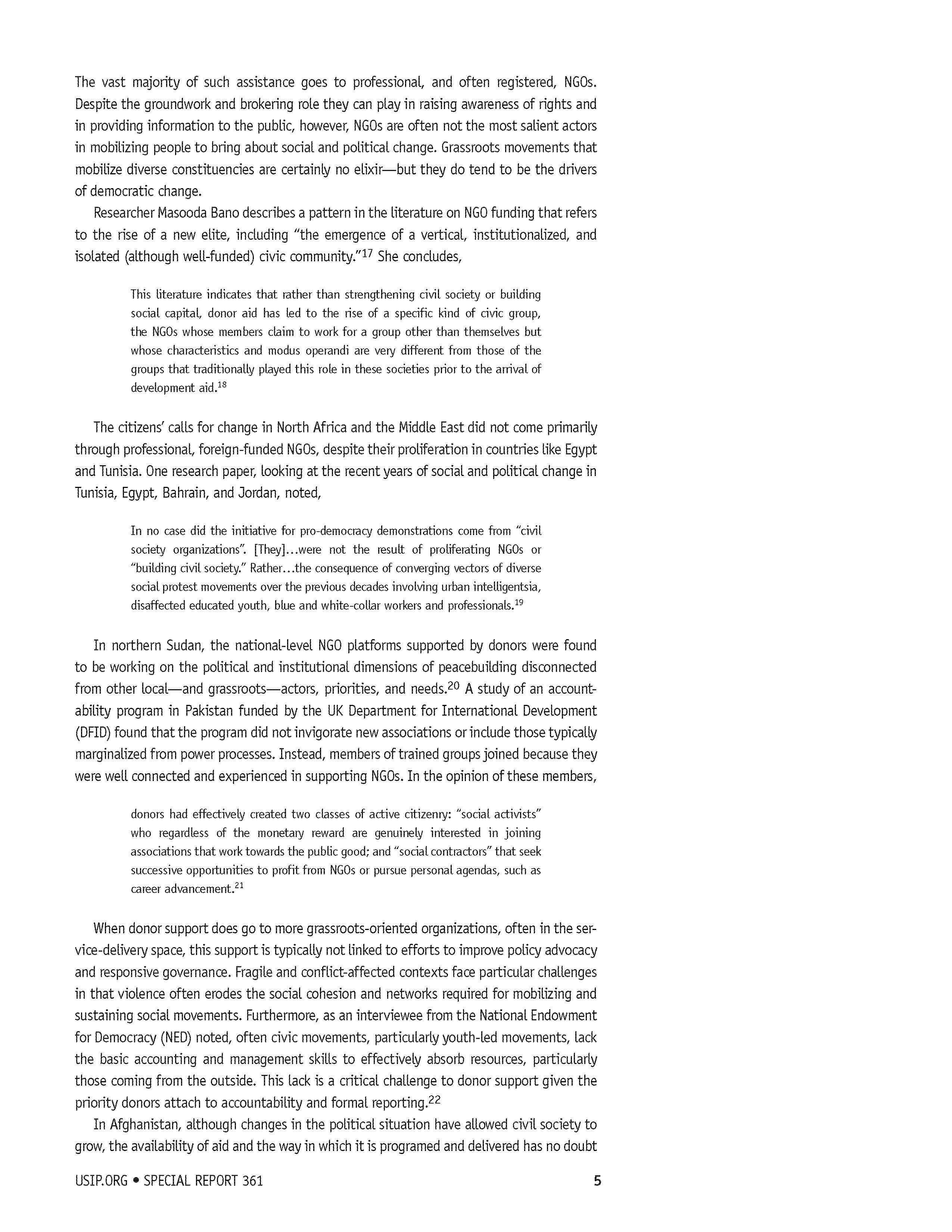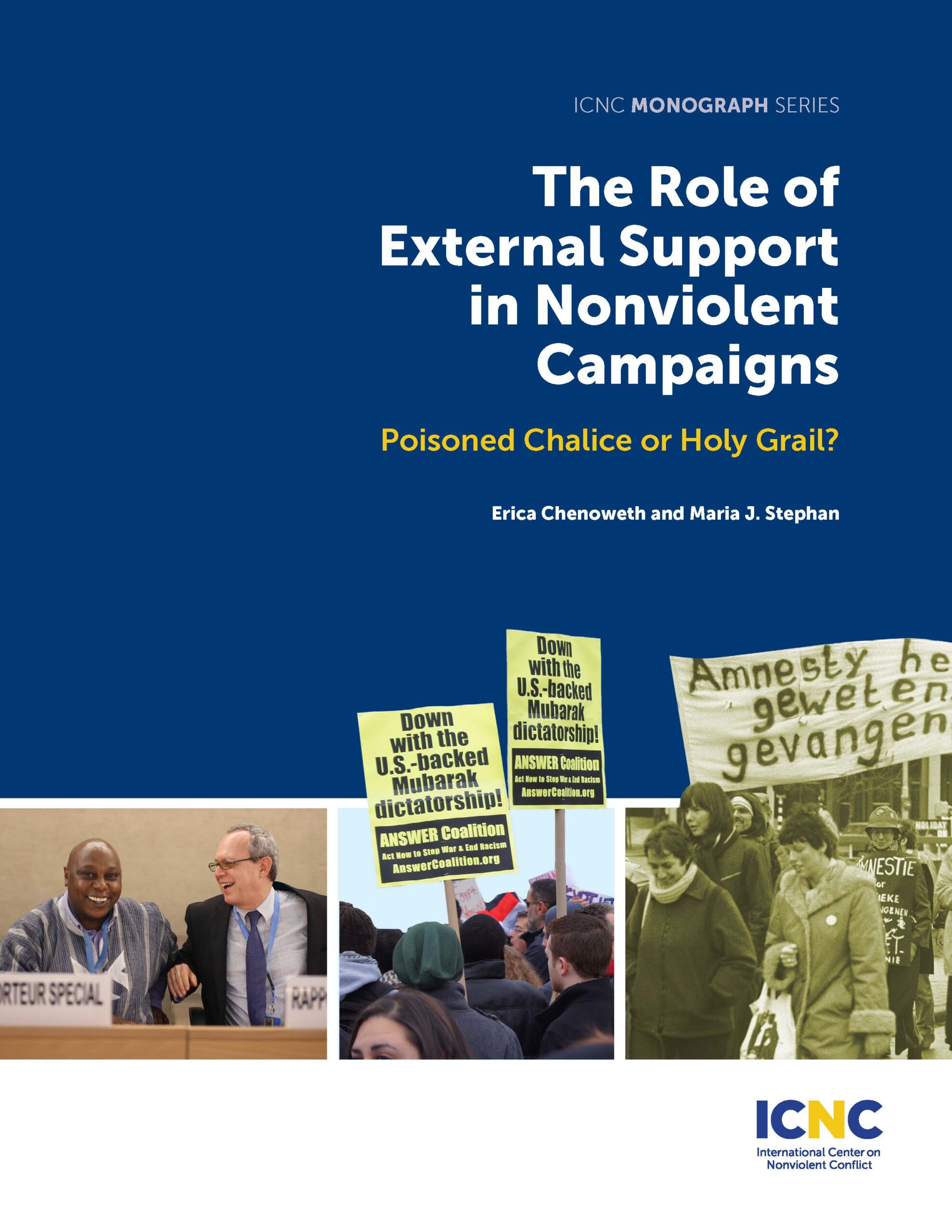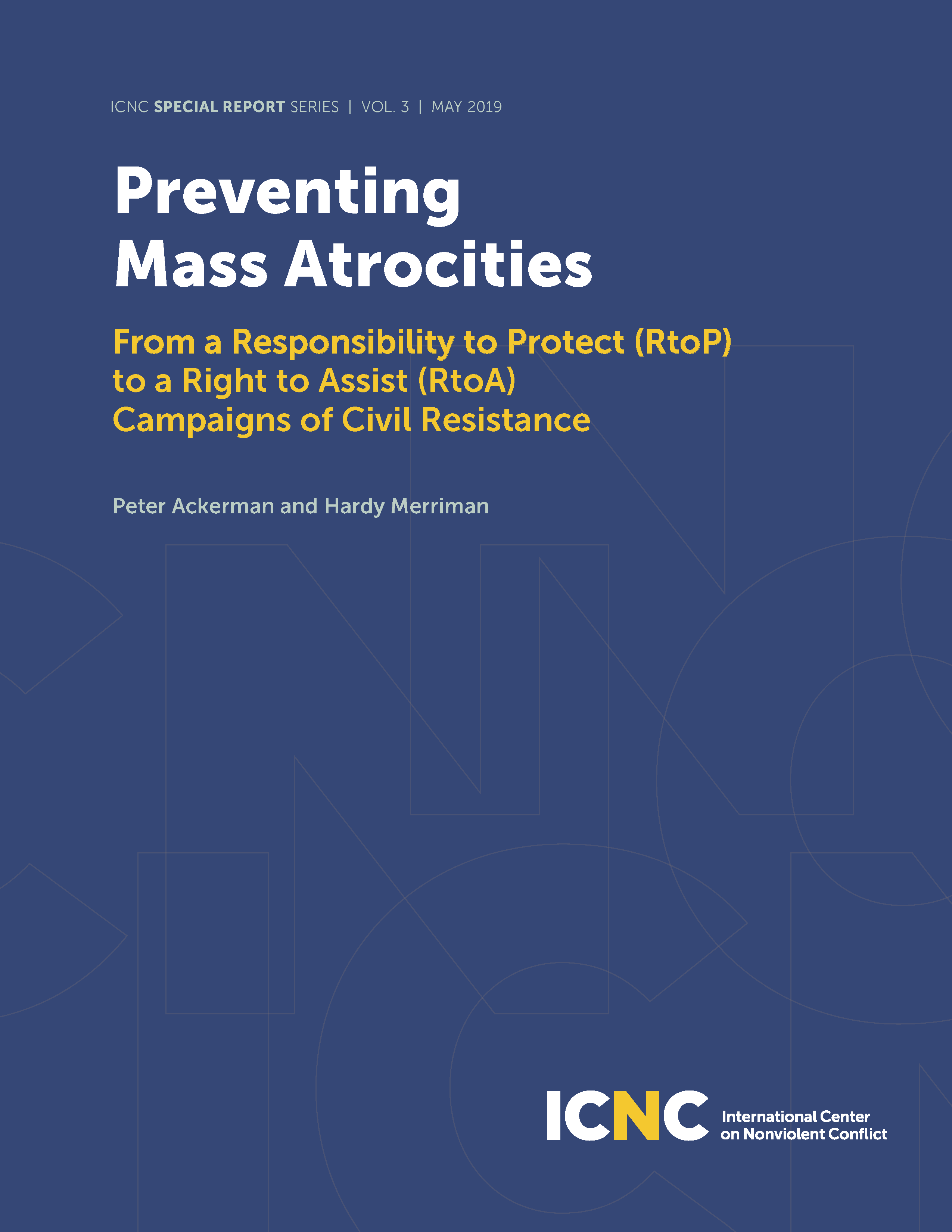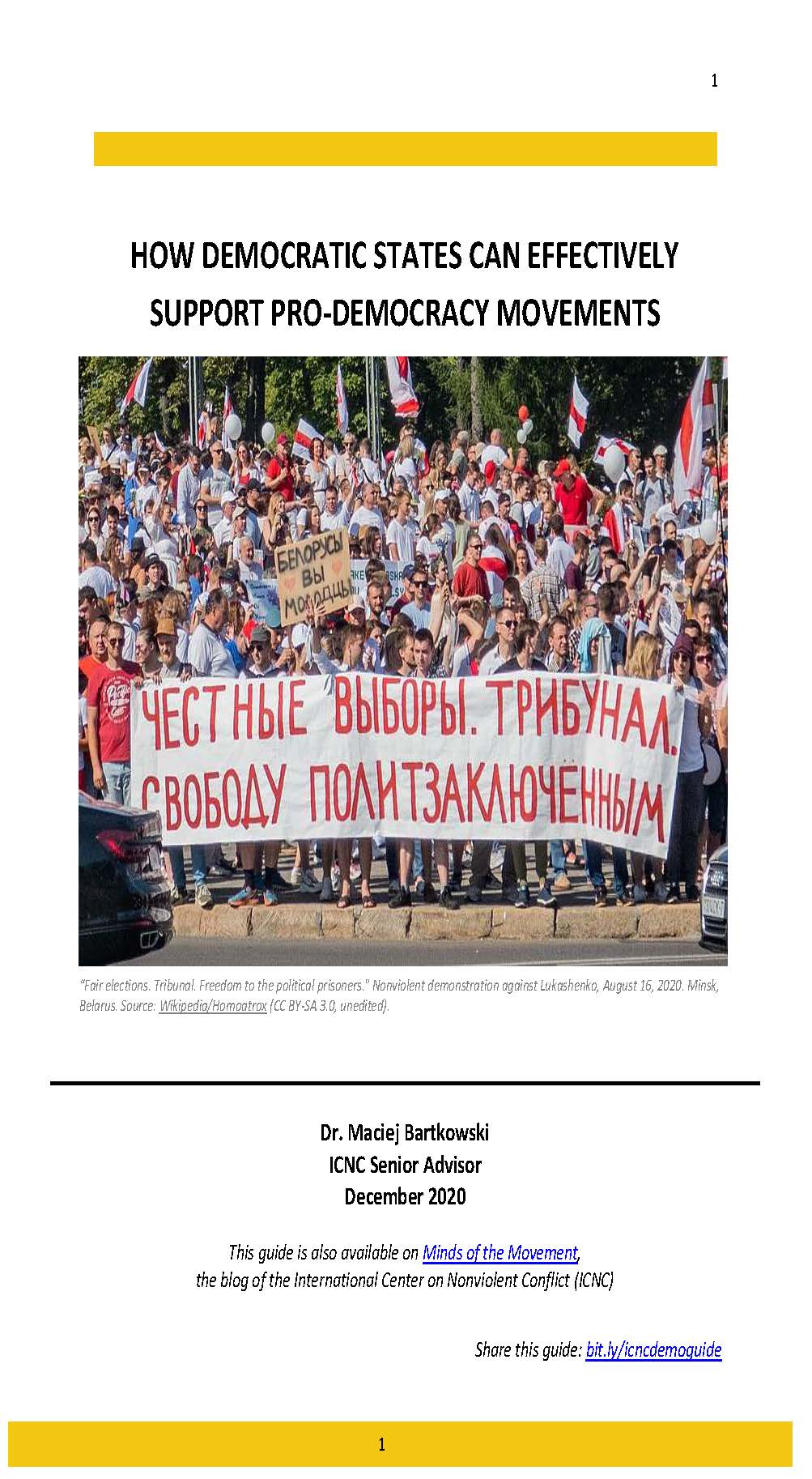Aid to Civil Society: A Movement Mindset
Vibrant civil societies are widely considered to be both bedrocks of successful development and buffers against the kind of predatory governance that so often breeds violence. Worldwide, organized citizen movements have successfully confronted government repression and discrimination, challenged discriminatory development practices, and pressed governments unwilling or unable to provide security, basic services, and livelihood activities. In India, Afghanistan, Turkey, Kenya, and elsewhere, civic movements have successfully challenged acute corruption, one of the most significant drivers of violent conflict and stumbling blocks to economic and political development.
Most recently, what we refer to colloquially as people power has captured the global imagination demonstrated by popular challenges to authoritarian rule in the Middle East and North Africa, the ouster of a corrupt leader in Ukraine, and colorful protests challenging government policies in Venezuela, Brazil, and Hong Kong. The importance and widespread nature of nonviolent campaigns and movements globally, and their role in both empowering citizens and confronting obstacles to effective political and economic development, raises the question of whether and how such campaigns can be effectively supported.
The challenge is not insignificant. Supporting civic movements that are fluid, diverse, decentralized, and often loosely organized is tricky. Aiding civil society actors whose structures and processes are unfamiliar to donors and might involve confrontational campaign tactics is difficult. The challenges are more acute when citizens are organized to challenge the practices of governments that are allies of major foreign aid providers or when movements press for aims that are inherently antidemocratic or antithetical to human rights norms.
Such difficulties are exacerbated by negative global trends affecting civil society. Crackdowns on civil society and restrictions on foreign support for democracy and human rights groups, which began in earnest in the last decade, are mounting around the world as governments impose draconian constraints on civic organizations and criminalize dissent
and as suspicion of Western-funded organizations grows.
Few have attempted to critically examine the effectiveness of foreign assistance tied to goals of social and political transformation—democratic development, human rights, accountability, and most recently countering violent extremism. One question that emerges from this new context is how foreign aid can most effectively be used to support civic campaigns and movements whose goals align with international norms.
This is not to suggest that foreign aid to traditional nongovernmental organizations (NGOs) and civil society organizations (CSOs) is without merit. Traditional CSOs are often key conduits between donors and more fluid movements. They also provide members with skills, resources, and convening spaces that are important for capacity building. Locally driven social and political movements are necessary for the type of democratic progress that the international community aims to support. Supporting nontraditional civil society actors, however, is neither easy nor without controversy. Doing so effectively requires fresh thinking and innovative approaches.
USIP Special Report
Published February 2015
